Is coding a purely seated activity? Alone in a dark room at home? NO is the clear answer. 20 kids in the age of 10-13 joined our summer courses on Outdoor Computing, organized by two European Erasmus+ projects “FabCitizen” and “Computational Thinking and Acting” and together with the city of Bottrop, Germany. The idea was to combine outdoor activities and coding, specifically app development. The course was the basis to start a Citizen Science project on discovering the nature in a specific quarter.
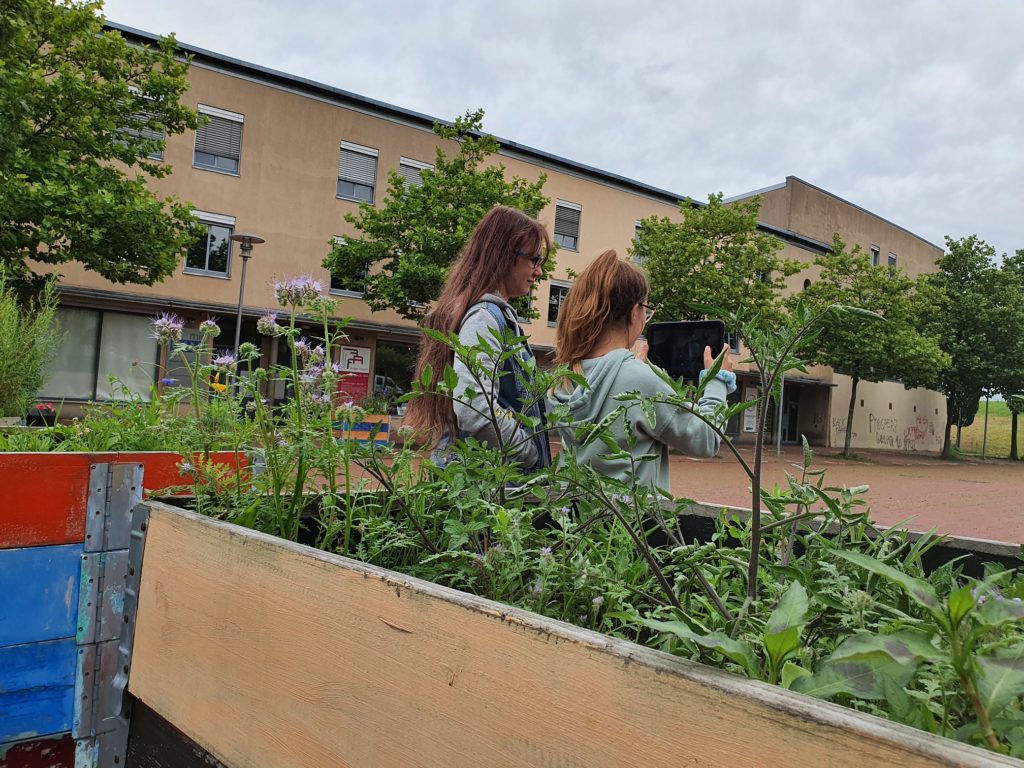
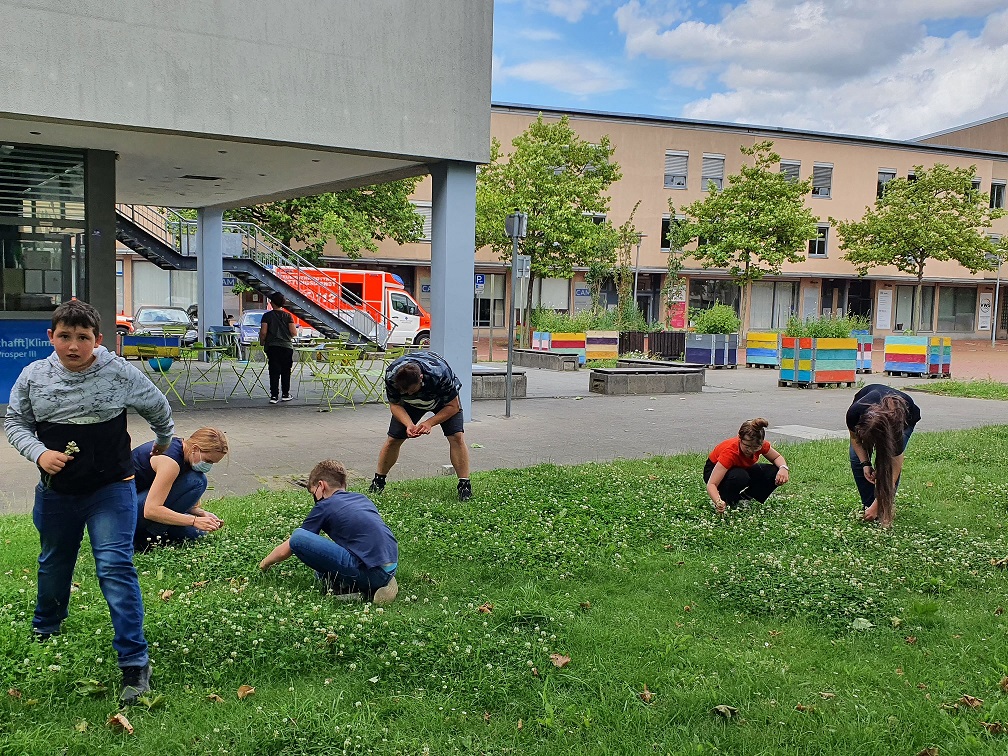
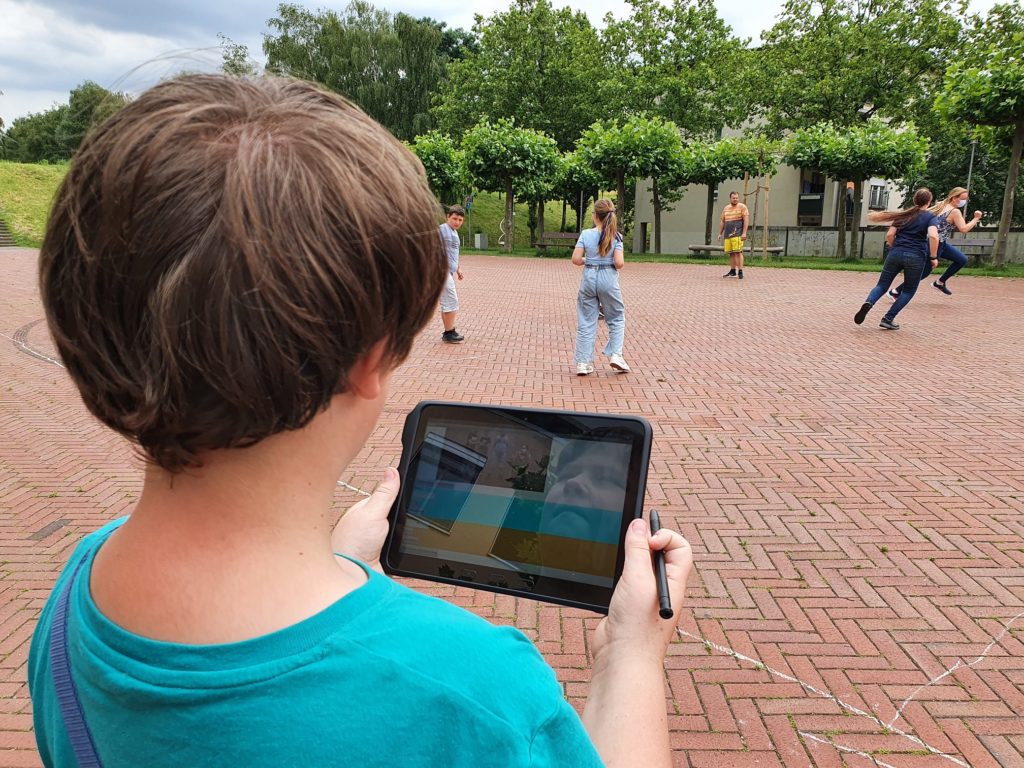
Normally, coding classes happen in computer labs – in the course “outdoor computing”, the kids arrived each morning and would receive outdoor tablet computers at the start of each day. However, coding was not the first activity – we started with sports and some physical activities. As a start, kids programmed an introduction app. Each group introduced themselves via an app. Part of the introduction was a (physical) challenge for the other groups: running up the stairs, collecting plants, scoring a goal on the nearby football court were just some examples the groups came up with.
During the week, several apps were developed such as a scoreboard which allowed to organize sports tournaments and capture the results. Of course, the validation included sports….Day by day, the kids developed more complex apps using the App Inventor programming environment by the MIT (Massachusetts Institute of Technology). The final app was the “Nature Explorer App”: The idea was to explore the nature – in our case, a re-natured former coal mining area. Within the app, plants and animals could be captured and identified. This was the basis to start a Citizen Science project about nature in the quarter.
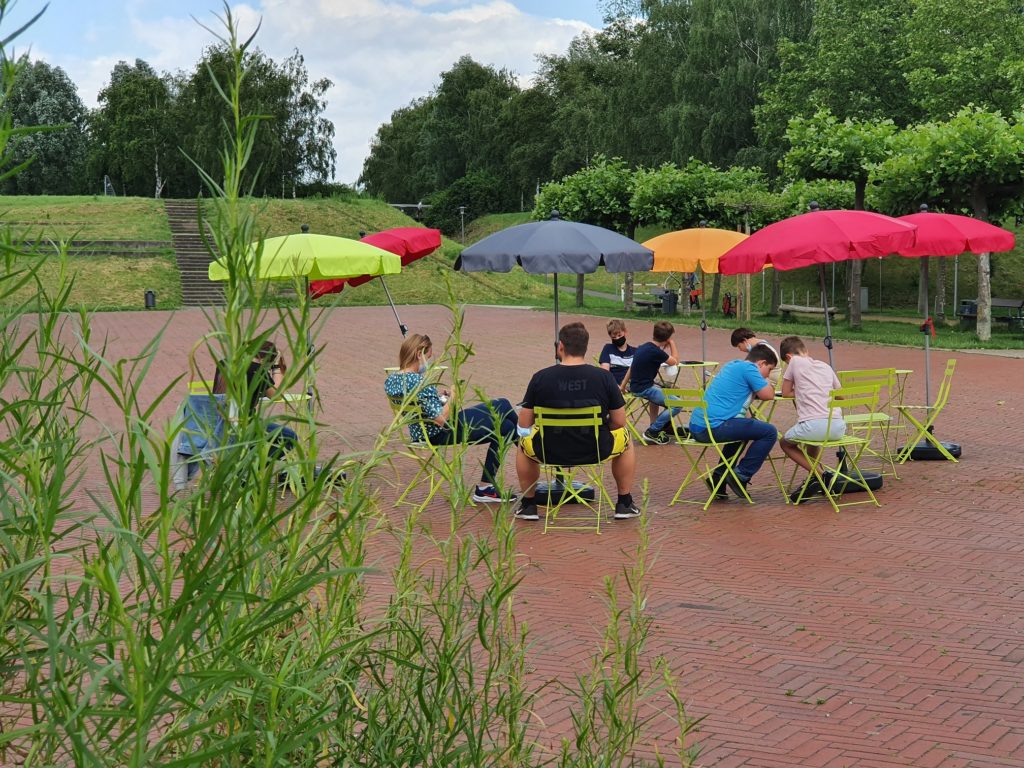
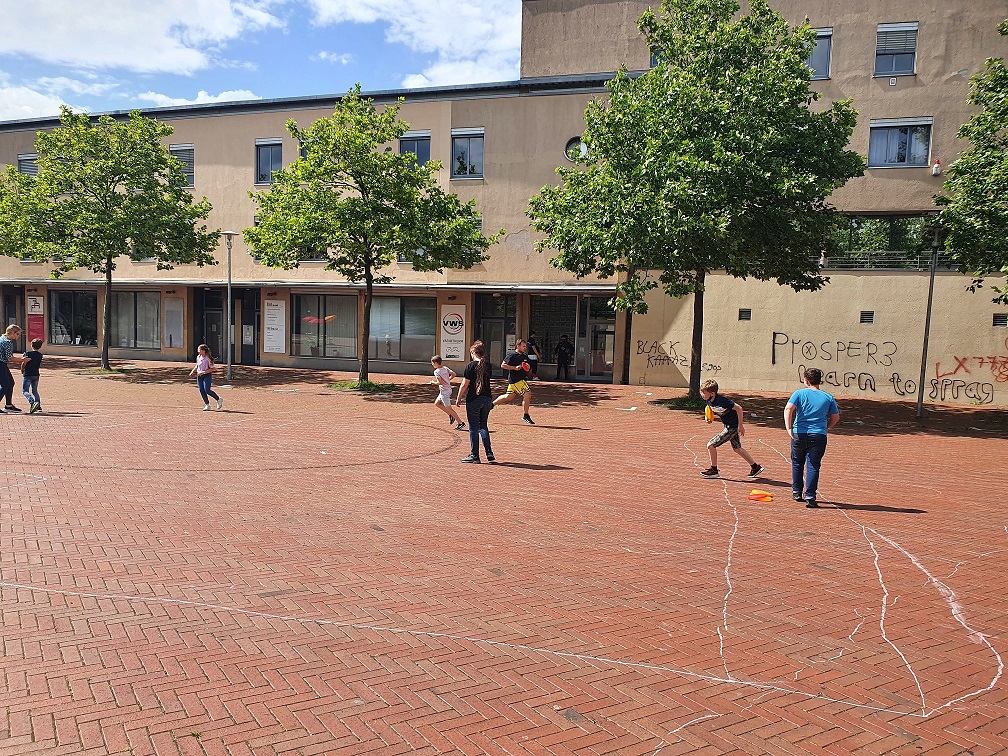
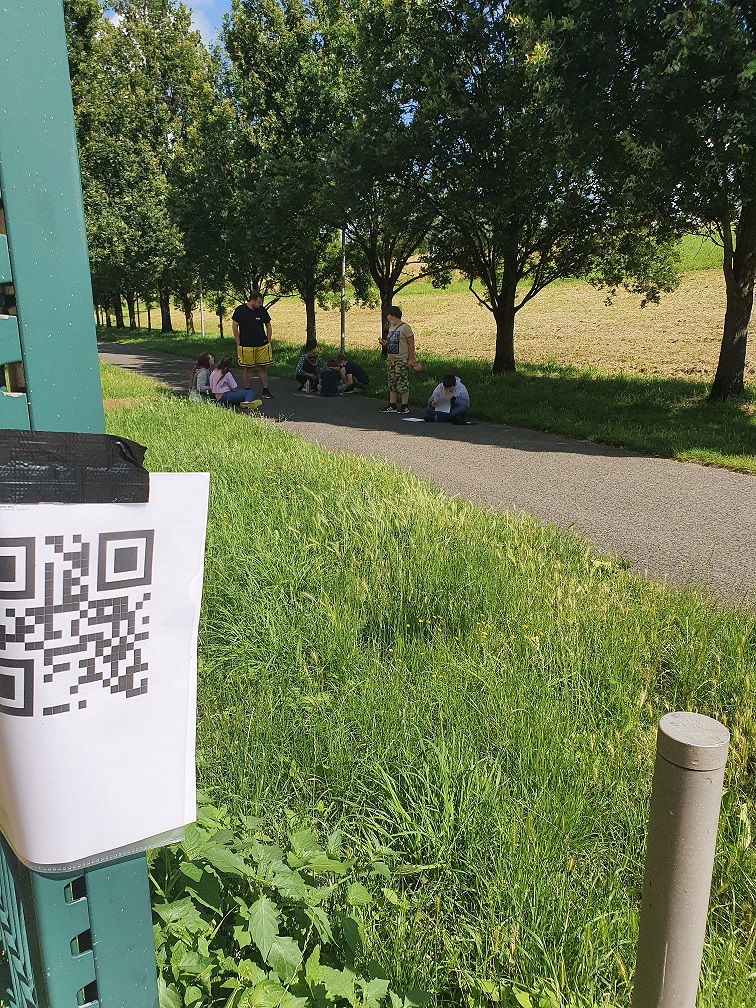
“I did not realize there are soooo many plants just in the very center of my home city”, one 11 year old girl said when using the app. “I liked to learn about computers and play football every day. Why can’t we do that in school?” wondered one boy, 10 years old. Maija (11) stated: “My favourite was the treasure hunt. We had an app to explore the area and solved a task at each station. And we won a cool price…”
As a surprise guest, Member of Parliament Michael Gerdes joined the kids – all apps were explained and the kids managed to explain the ideas to an experienced politician.
At the end, all kids received their certificates from Ruhr West University of Applied Sciences and were proud to present those to their families. One mum stated that she had never believed her kid would be sleeping so well every day after a programming course. It seems as if the kids have been active, both physically and intellectually.
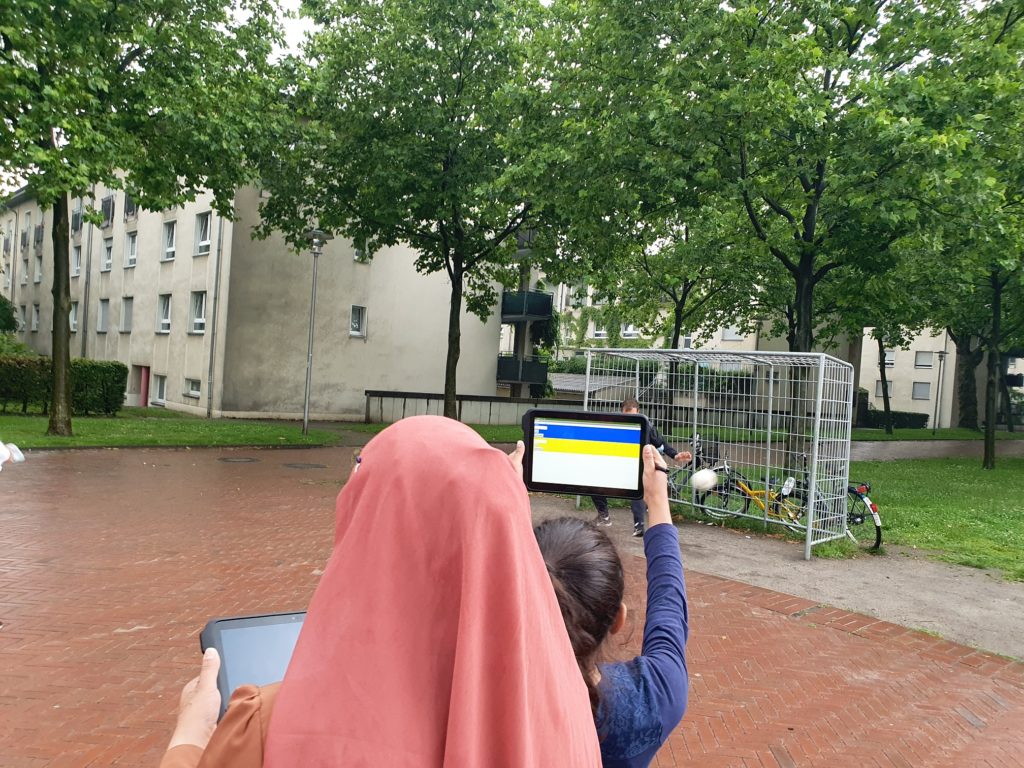
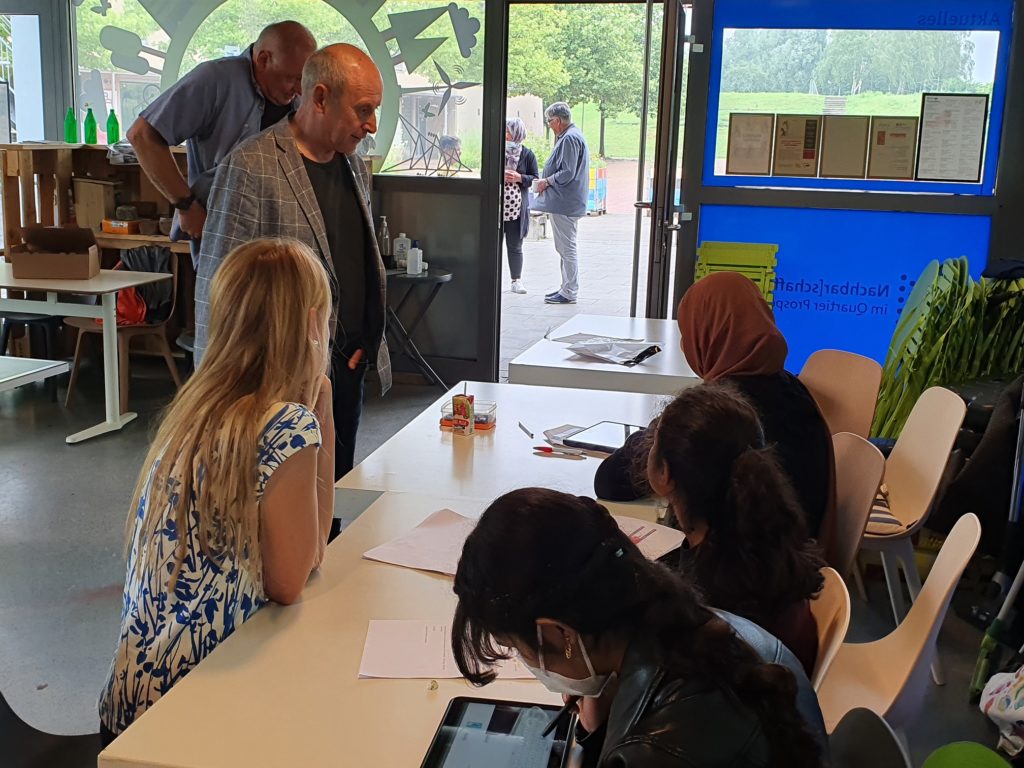
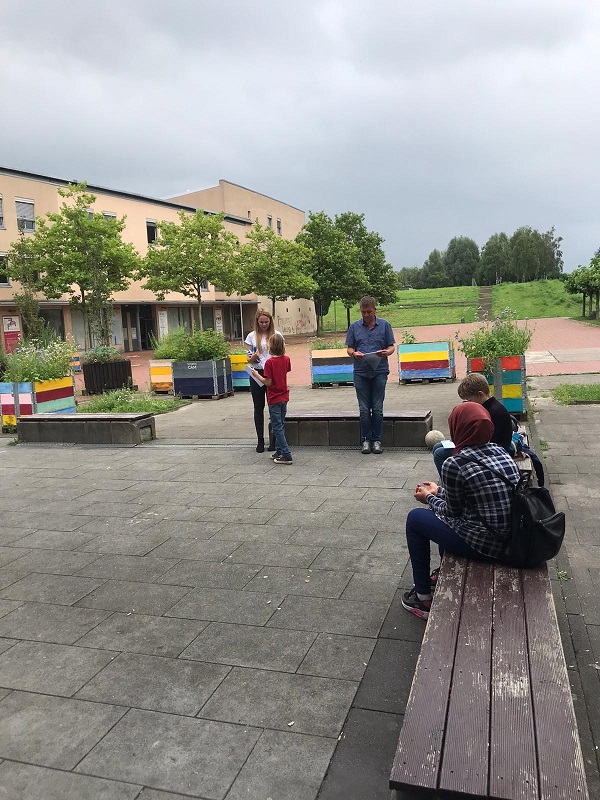
The idea will continue – we will continue to develop ready-to-use Citizen Science projects, learning scenarios and materials for kids between grade 5 to 9 as well as for teachers. All scenarios have in common that they combine collaborative computer activities with solving real-world problems and being active. Apart from learning to code, we hope to contribute to well-being and a different attitude towards computing.